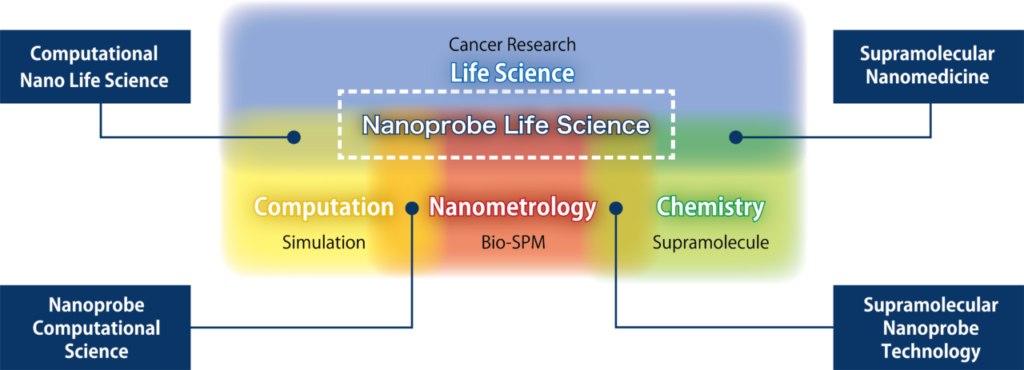The Nano Life Science Institute will establish a new field of study called Nanoprobe Life Science, which integrates the studies of nanometrology, life science, supramolecular chemistry, and computational science.
The following two missions form the pillars that support the above mentioned objective:
1. Development of nano-endoscopic techniques
Integrated fields of study:
scanning probe microscopy + supramolecular chemistry + multi-scale simulation
Establishment of technology to directly observe, analyze, and manipulate the nano-scale movement of proteins and nucleic acids on the cell surface and in the cell.
2. Elucidation of nano-scale movements of normal and cancerous cells
Integrated fields of study:
scanning probe microscopy + life science + multi-scale simulation
Nano-scale understanding of basic cellular functions, and elucidation of molecular cell movements through comparisons of normal and cancerous cells.
Projects for promoting transdisciplinary research
Since the beginning, NanoLSI scientists have regularly shared insights, perspectives, and methodologies with their colleagues in the institute’s other research domains. By engaging in such transdisciplinary dialogue, they have developed a deep mutual understanding that helps them to advance world-leading research in their respective fields and to make effective use of the shared body of knowledge and research expertise. The result is a close-knit community of diverse scientists, and it is our goal to nurture and evolve the ideas that only such a community can produce. As a one-of-a-kind research center, we are firmly committed to generating a steady stream of new discoveries and concepts, and translating them into advances in science and technology, in a constant cycle of creation and evolution.


